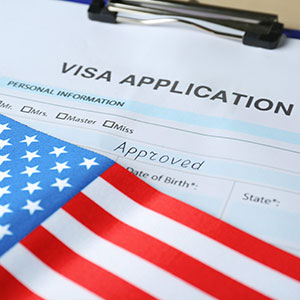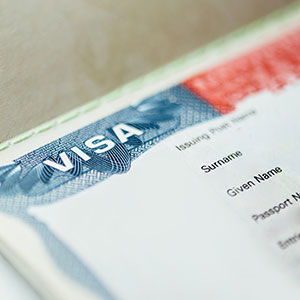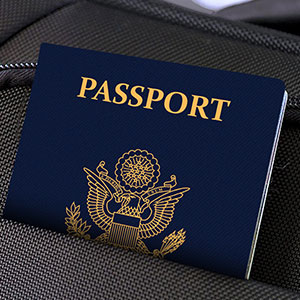
While there are many ways to live and work in the United States, the E-2 treaty investor visa represents a way that you can build your own business. The application for an E-2 visa is not overly complicated. However, there are a number of requirements to keep in mind. Requirements For An E-2 Treaty Investor In order to qualify for an E-2 visa, a treaty investor must: Be a national of a country with which the United States maintains a treaty of commerce and navigation. These treaty countries can be found here. Have invested or be actively in the process of investing, a substantial amount of capital in a bona fide enterprise in the United States. Be seeking to enter the United States solely to develop and direct the investment enterprise. This is established by showing at least 50% ownership of the enterprise or possession of operational control through a managerial position or other corporate device. What Is An “Investment?” An investment is the treaty investor’s…Read More

An O-1 visa is a useful tool for those foreign nationals with extraordinary ability who wish to work in the United States. However, there are some common misconceptions. I Can Work For Multiple Employers On An O-1 Visa With very few exceptions, nearly every work visa in the United States must be tied to a specific employer. An O-1 sponsor does not have to be an employer in the strictest sense. An individual can work for an agent and then perform work for multiple clients through that agent. However, if an individual wishes to work for multiple employers or multiple agents, they would have to be sponsored under multiple concurrent petitions. In addition, if an O visa holder wishes to change employers, they would have to file a new petition sponsored by the new employer. An O-1 Visa Is Only For Artists While sometimes referred to as an “artist” visa, O-1 visas are available to individuals who possess extraordinary ability in any field. O-1A visas are available…Read More

As the United States responds to coronavirus, many immigrants are feeling frightened and confused about how this will impact them. While things are changing quickly and it’s difficult to be certain of what we can expect, our team is here for you and wants to help. In today’s blog, we’re looking at a few of the ways COVID-19 has affected the immigration process and what these changes mean for you. 1. Limited Travel Across The United States And Mexico Border As of March 20th and until at least April 20th, non-essential travel between the United States and Mexico has been forbidden. Essential travel includes U.S. citizens and lawful permanent residents re-entering the United States, travel for medical purposes, travel for education, travel for work, travel for emergency response, cross-border trade, governmental and diplomatic travel, and military travel. All other travel is on hold. These changes mean that visits to see family or take a vacation will not be allowed in this interim. There are also…Read More

O visas are a useful tool for individuals of extraordinary ability who wish to work in the United States. Here are some frequently asked questions: What Is The Purpose Of An O Visa? The O visa is a nonimmigrant visa available to those individuals, and their families and support personnel, who demonstrate extraordinary ability in the sciences, arts, education, business, or athletics, or who have a demonstrated record of extraordinary achievement in the motion picture or television industry. What Are The Benefits Of An O-1 Visa? Unlike with an H1-B visa, there is no lottery that an employee has to go through for an O-1 visa. O visas can be issued fairly quickly and are granted for a maximum of three years with unlimited one-year extensions. O-1 visa holders may also pursue permanent residency. What Does “Extraordinary Ability” Mean? The phrase “extraordinary ability” means that a person has a level of expertise and is one of that small percentage of individuals who have risen to…Read More

It appears that the Trump administration plans to increase immigration fees for many business applications by 50%. It also will increase the fees paid by workers to become citizens or gain permanent residency. This increase in fees could hit businesses hard. Proposed Rule On Immigration Fees In November of 2019, the Department of Homeland Security (DHS) published a proposed rule. This rule called for an increase in fees for key business immigration categories. It amounts to, essentially, an increased tax on businesses that use foreign workers. Undermining the argument that an immigrant workforce takes jobs away from Americans is the fact that job openings in the U.S. outnumber the unemployed. The increase in fees will likely not decrease the slow processing times that many have experienced lately. The rules specifically state that factors that are affecting processing times will not be changed. The average USCIS processing time has increased by 91% between 2014 and 2018. This is even in light of the fact that the number…Read More

Just like most nonimmigrant visas, you cannot self-petition for an O-1 visa. Your O-1 visa petition must be sponsored by an authorized United States-based individual or organization. Even if you want to work for multiple employers as a contractor or freelancer, your petition must be sponsored by those employers or by an agent. Authorized sponsors of an O-1 petition include: United States Employer An employer who will be providing you with a job can sponsor your O-1 visa petition. If you intend to only work one job the entire duration of your visa, then you only need one sponsor. It must be established that the employer has a job offer for you. There must be an agreement on the job description, the wages, and other terms and condition between you and the employer. If you will be working for multiple employers, then each employer must submit a separate petition detailing the activities involved in the jobs. Agent When there is not a traditional employee/employer relationship…Read More

As part of your application for an L-1 visa, you will be required to undergo in an in-person interview with a consular officer. The consular officer will primarily be ensuring that you meet all of the requirements of an L-1 visa before issuing the visa. You may be nervous about your L-1 visa interview, so here are some tips to help you prepare. Prior To The L-1 Visa Interview Be sure to arrive at the interview 15-30 minutes in advance. Make sure you are in the right line at the consulate. Make sure that all your documents are in proper order. Make sure that you thoroughly understand all of your documents. If your company offers mock interviews, be sure to attend them. Know the team structure at your current job and how it will work in the United States. Dress is what you are comfortable in. A suit and tie are not necessary but make sure you look neat and clean. Behavior During The L-1…Read More

When sponsoring an L-1 visa, there is no restriction on the type of business that can be a sponsor. Corporations, LLCs, government-owned entities, non-profits, and charitable organizations can all be sponsors. There is no requirement that the company be U.S.-owned or incorporated. There are several business entities that may qualify. As long as these entities meet the definition of a “qualified organization,” the foreign national will be granted temporary, nonimmigrant work status in the United States. Branch A branch is an operating division of the same organization that is located in a different place. They are different operating locations of the same company. A multi-national corporation will have branches in different countries. A foreign company with a branch in the United States qualifies for an L-1 visa, as does a U.S. company with a foreign branch. Subsidiary A subsidiary is a firm, corporation, or other legal entity, where a parent company owns, directly or indirectly, more than half of the entity or controls the entity.…Read More

An O-1 visa is very useful if you are looking to temporarily work in the United States. This visa provides substantial advantages, but it can be difficult to obtain. It is necessary to demonstrate that you are an individual with extraordinary ability. In order to qualify for an O-1 visa, you must prove that you have extraordinary achievements in your field. Depending on the category, you must demonstrate extraordinary ability in science, athletics, business, education, or the arts. There is a list of different qualifications for each of these visas and as long as you meet three or more of the requirements you may be able to obtain an O-1 visa. Some of the advantages of an O-1 visa include: Sponsors While you cannot self-petition and you must have a sponsor for an O-1 visa, there is some flexibility in who can sponsor you. Most work visas require that the sponsor be someone who will employ you in the United States. With an O-1 visa…Read More

A visa with dual intent allows a foreign national to be present in the United States with the intention of becoming a permanent resident. Most visas require that the applicant intends to eventually return to their home country. Therefore, attempting to adjust your status while on that type of nonimmigrant visa can have a detrimental effect on your immigration possibilities. Nonimmigrant Intent Before receiving a visa, an applicant must make clear their intention to the consular office. If they are not truthful it could be considered fraud and this could have a long-term negative effect on their status. Every consular office presumes that someone is an immigrant unless they can establish nonimmigrant intent. To prove nonimmigrant intent, an individual should show that they have a permanent residence in their country that they have not abandoned. They should also show that they do not intend to permanently immigrate to the United States and that they are simply visiting the country. Other factors considered include family and…Read More